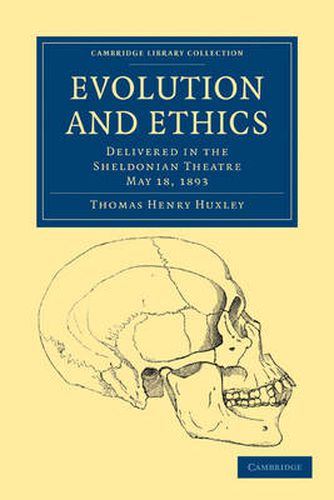Readings Newsletter
Become a Readings Member to make your shopping experience even easier.
Sign in or sign up for free!
You’re not far away from qualifying for FREE standard shipping within Australia
You’ve qualified for FREE standard shipping within Australia
The cart is loading…






In 1893, the biologist and educator Thomas Henry Huxley (1825-95) published the text of a public lecture on ethics and evolutionary theory. He opens Evolution and Ethics with the story of Jack and the Bean Stalk as a metaphor for cyclical evolution-the small seed that becomes a mature plant. Huxley then takes the reader on a journey through two culturally different belief systems Buddhism and Greek intellectual thought - to illustrate human attempts to understand the ‘cosmic process’. Huxley outlines the growth of differing concepts of justice as populations became more organised, and how different societies dealt with the knowledge that nature is unjust. Huxley abhors the harsh applications of Darwin’s work to society and decries the ‘gladiatorial theory of existence’. Arguing against the concept of social Darwinism, Huxley proposes that ethical behaviour must counteract the painful effects of the ‘struggle for survival’ in order for society to progress.
$9.00 standard shipping within Australia
FREE standard shipping within Australia for orders over $100.00
Express & International shipping calculated at checkout
In 1893, the biologist and educator Thomas Henry Huxley (1825-95) published the text of a public lecture on ethics and evolutionary theory. He opens Evolution and Ethics with the story of Jack and the Bean Stalk as a metaphor for cyclical evolution-the small seed that becomes a mature plant. Huxley then takes the reader on a journey through two culturally different belief systems Buddhism and Greek intellectual thought - to illustrate human attempts to understand the ‘cosmic process’. Huxley outlines the growth of differing concepts of justice as populations became more organised, and how different societies dealt with the knowledge that nature is unjust. Huxley abhors the harsh applications of Darwin’s work to society and decries the ‘gladiatorial theory of existence’. Arguing against the concept of social Darwinism, Huxley proposes that ethical behaviour must counteract the painful effects of the ‘struggle for survival’ in order for society to progress.